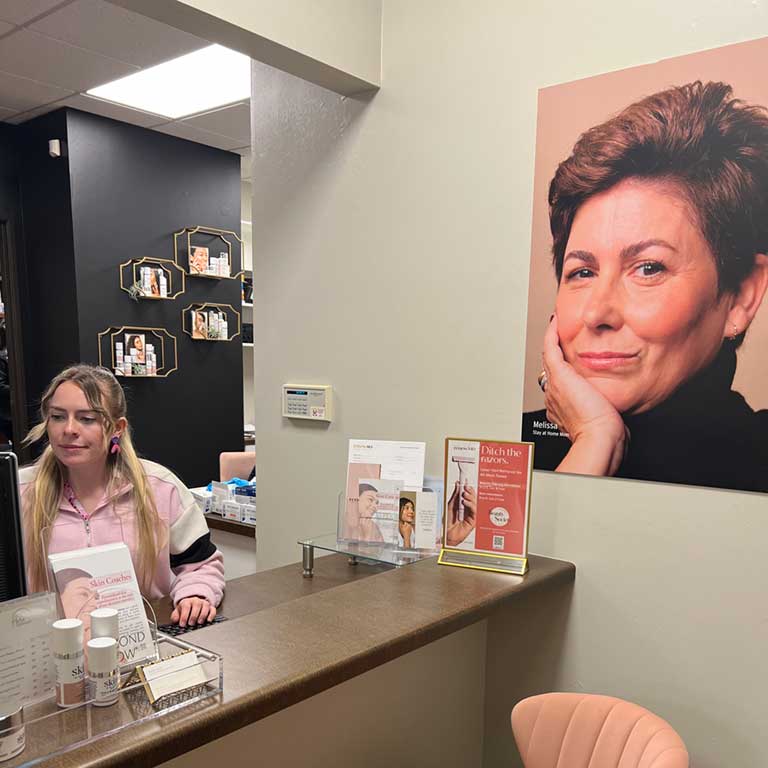We hear many claims about which foods to avoid for clear, youthful, and healthy skin. But what foods and nutritional components can help improve our skin’s health and appearance?
On The Skin Report podcast, Dr. Simran Sethi, an Internal Medicine doctor and the Founder and Medical Director of RenewMD medical spas, discusses science-backed facts about how nutrition plays an essential role in the health of our skin. While certain foods can cause adverse effects on the skin, consuming nutritious foods can positively impact your skin’s health from the inside out!
Health Components for Healthy Skin
Incorporating the right nutrients into your diet can help you to achieve vibrant, glowing skin. Anyone can do this through the consumption of nutrient-rich foods or by supplementing. So let’s discuss some key nutritional components you should apply to your eating habits!
Best Vitamins for Healthy Skin
We all know that vitamins are essential for our health, but choosing a diet of foods higher in skin-friendly vitamins may be beneficial for supporting our skin.
One vitamin that is very beneficial for our skin is vitamin C. Vitamin C is an antioxidant often used in skincare, as it binds to ‘free radicals’. In doing so, this vitamin can support our cells’ ability to function, including supporting our skin cells.
Vitamin C is also essential in aiding the production of new collagen and skin repair. In a 2017 study published in the National Library of Medicine, daily use of Vitamin C formulation was shown to improve skin texture and appearance in just three months.
Vitamin C also benefits the skin by reducing signs of skin aging and hyperpigmentation, as it can help our skin produce collagen and repair oxidative damage. Blood vessels in the body supply our skin’s dermis layer, transporting antioxidants like vitamin c to the skin, where they bind with and neutralize the damaging free radicals that would otherwise age our skin cells.
Therefore, consuming foods rich in vitamin C can enable our skin to produce collagen and elastin proteins and improve the effects of hyperpigmentation and UV damage.
The Truth about Fatty Acids and Collagen
A popular belief is that fatty foods cause negative impacts on the skin. However, this is not entirely true. You see, “fats” can be divided into healthy and unhealthy fats.
Omega-6 fats can promote acne production and are considered unhealthy when consumed in excess. On the other hand, omega-3 fatty acids are a group of fats that are found to be beneficial for skin health.
In multiple molecular studies, Omega-3 fatty acids have been shown to possess anti-inflammatory properties. They are also being studied in more clinical trials for reducing inflammation caused by skin diseases like psoriasis and eczema.
Another belief that has gained popularity over recent years is that collagen supplementation can provide beneficial effects on the skin through increased skin elasticity and hydration.
An extensive meta-analysis published in the International Journal of Dermatology in 2021 included a grouped analysis of studies that showed favorable results of hydrolyzed collagen supplementation compared with placebo in skin hydration, elasticity, and wrinkles. This subgroup meta-analysis also confirmed the findings of improved hydration and elasticity.
Foods and Nutritional Components for Improved Skin
So, how can someone easily incorporate skin-healthy nutrients within their dietary decisions? Well, it all depends on what you are looking to increase within your diet.
| Vitamin C Rich Foods | Vitamin C Quantity | Additional Benefits |
| Acerola Cherries | Acerola cherries contain one of the highest amounts of vitamin c, with 825mg in just half a cup. | Consuming a handful will provide more than enough vitamin c to support the cellular function of both the dermis and epidermis, which in turn will help with clearing of hyperpigmentation. |
| Guava | A guava can contain 125mg of vitamin C, which is over 130% of our required daily value. | It is also high in fiber content, which makes it an excellent choice for packing in a lot of vitamin C with a single serving. |
| Strawberries | Strawberries provide over 100% of our needed daily value. | They are also high in folate, a micronutrient that is beneficial for fighting hyperpigmentation and in improving overall skin and hair health. |
| Papaya | Papaya provides 88 mg or 98% of recommended daily value. | Papaya is also powerful in fighting inflammation, which is a leading cause of hyperpigmentation especially in more melanated skin tones |
| Kale | A cup of kale provides over 100% of daily value of vitamin C. | Kale delivers additional healthy skin benefits like inflammation reduction. |
As for omega-3 fatty acids, you can easily incorporate these within your diet. Chia and flax seeds have high contents of omega-3 fatty acids and are each great sources of fiber! Fatty fish like salmon also contain skin-healthy omega-3s
Collagen supplementation can be effective in improving signs of skin aging like wrinkles. However, you should look for the right oral collagen supplements to benefit your skin the most.
To benefit from collagen consumption, you should take at least 10 to 20 gms daily. Unfortunately, pills contain small amounts of collagen, making it difficult to reach this recommended amount. In contrast, powder collagen products include a greater quantity and can be easily consumed in foods and beverages.
Collagen supplements are either sourced as marine collagen from fish or as bovine collagen made from cowhide. While both options can provide users with skin benefits, bovine collagen is tasteless and easy to consume.
To learn more about how certain foods can improve your skin’s health, tune into Season 1, Episode 28 of The Skin Report podcast.








Leave A Comment